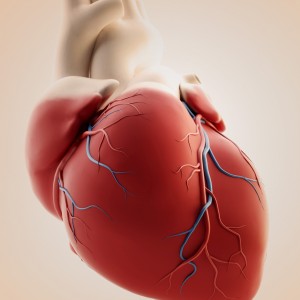 A research team from Stanford University School of Medicine identified that US health centers have been increasingly rejecting hearts donated for transplantation, despite their increased need. The researchers also highlighted the need to improve scientific guidelines to establish if a donor heart is acceptable for transplant. The study is published in the current issue of the American Journal of Transplantation.
A research team from Stanford University School of Medicine identified that US health centers have been increasingly rejecting hearts donated for transplantation, despite their increased need. The researchers also highlighted the need to improve scientific guidelines to establish if a donor heart is acceptable for transplant. The study is published in the current issue of the American Journal of Transplantation.
“We’ve become more conservative over the past 15-20 years in terms of acceptance, which is particularly troubling because of the national shortage of donor hearts and the growing number of critically ill patients awaiting heart transplantation,” said Kiran Khush, MD, assistant professor of cardiovascular medicine in a recent news release.
According to the study, in 2011 only 1,949 patients received heart transplants when more than 20.000 patients had a need for such a procedure.
“There is likely a significant number of suitable donor hearts that are not getting used,” said John Nguyen, nurse at the Oakland-based California Transplant Donor Network. “Creating a more systematic way of evaluating these hearts based on scientific evidence could increase the number of heart transplants.”
“Invariably, we receive donor heart offers that we’re not sure if we should accept,” Khush said. “Different surgeons vary as to which hearts they will accept. As patients wait longer, they often get sicker, and we often lose patients. Increasing the supply of donor hearts is, of course, a great concern of mine.”
The research team led by Dr. Kiran Kush retrieved data of potential heart donors from 1995 until 2010 from the Organ Procurement and Transplantation Network (OPTN). Results showed that from 82,053 possible donor hearts, 34% were accepted and 48% were dropped. The results also revealed a decline in donor heart receipt from 44% in 1995 to 29% in 2008, with a rebound to 32% in 2010.
“Only one in three available donor hearts is currently accepted for transplantation, which greatly limits heart transplant rates nationwide,” the study said.
The main reasons for donor heart discard are small heart size, age and comorbidities of the donor, including diabetes and hypertension. The donation is discarded when the donor is aged above 60 years, has HIV, hepatitis C or a history of heart disease.
“Beyond that, there are a lot of criteria that vary from surgeon to surgeon and center to center,” Khush said. “With factors like mild thickening of the heart muscle, as can be seen in donors with high blood pressure or drug abuse, it is really up to the transplant center or the surgeon.” Echocardiograms and electrocardiograms from donors are also provided to the centers, but Khush said there is no good scientific data available to say which echo or ECG findings really matter.
According to the study there is limited evidence regarding an association between the use of higher-quality donor heart and an increase in life expectancy in patients that receive heart transplant and a decrease in adverse effects. The authors noted that any minor improvement must be balanced with the risk of a patient dying while expecting for a heart. The authors also mention that increased use of mechanical circulatory provision technologies could explain the decrease in rate of donor heart acceptance.
“A lot of people think we have this as an option now so we can afford to wait longer and decline hearts that may not be perfect,” Khush said.
After discovering that regions of the U.S. varied in terms of donor heart utilization, the research team called for standardized donor heart acceptance practices with clinical guidelines
“There are a lot of centers that only do a handful of heart transplants each year,” Khush concluded. “They are still in early stages for developing criteria for accepting donor hearts. Hopefully, there will be more evidence-based research to help guide these centers.”


